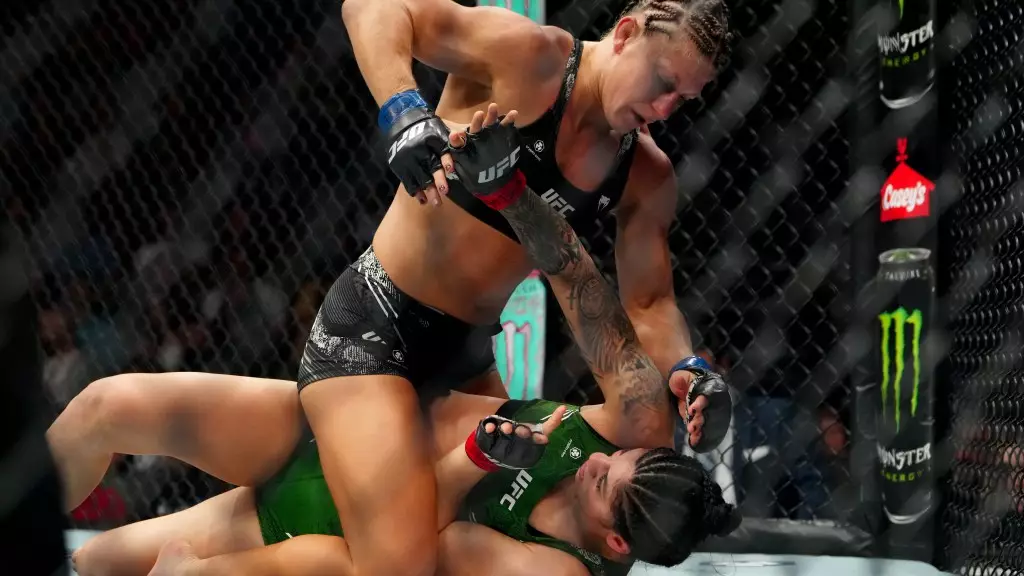In the world of mixed martial arts (MMA), the dynamics between fighters can shape an athlete’s career trajectory just as much as their physical abilities. Recently, the landscape has been particularly charged following the UFC 307 event, where Julianna Peña successfully reclaimed her title in a closely contested bout against Raquel Pennington. While the narrative of Peña’s victory might seem straightforward, the larger saga involving Kayla Harrison, who is now the No. 1 contender, introduces a layer of complexity that reflects the intricacies of competition in the octagon.
Peña’s Focus and Harrison’s Frustration
It was telling that during Peña’s post-fight interview, where she basked in the glory of her title reclaiming, she did not extend a call-out to Harrison. Instead, her focus shifted to a potential trilogy fight with the formidable Amanda Nunes. This choice led some observers, including Harrison herself, to speculate that there might be a hesitance on Peña’s part to face her. Harrison, a two-time Olympic gold medalist in judo, expressed her belief that Peña’s sidestepping of a showdown speaks volumes about her mental preparation. In the heated atmosphere of MMA, a fighter’s willingness—or reluctance—to face a challenger can often be interpreted as a sign of confidence or fear.
Title Chasing and Strategy
When asked about her preference for future opponents, Harrison made it abundantly clear that she does not intend to limit herself. Her bold strategy involves aiming for bouts with both Peña and Nunes, labeling her as a champion hungry for accolades and recognition. Harrison’s ambition conveys not just the desire for titles but a sense of urgency—she wants the opportunity, and she wants it now. By suggesting that she could easily take out Peña before setting her sights on Nunes, Harrison emphasizes her determination, positioning herself as a fighter ready to take risks for glory.
Another compelling topic that emerged from UFC 307 was the judgment surrounding Peña’s match against Pennington. Many fans and analysts believed that Pennington had done enough to win, a sentiment echoed by Harrison, albeit with the admission that she hadn’t seen the full fight. The issue of how titles are won is a poignant one—Harrison hinted at the idea that reigning champions must do more than simply defend their title; they need to convincingly claim it. This viewpoint shines a light on the subjective nature of judging in combat sports, where interpretations can differ drastically, leading to heightened emotions and rivalries among fighters and their camps.
As the dust settles from UFC 307, both Peña and Harrison stand at pivotal crossroads in their careers. For Peña, she must solidify her title reign amidst questions of her readiness to face off against a determined contender like Harrison. For Harrison, the path seems promising as she navigates the charged atmosphere, eager to stake her claim within the elite ranks of women’s MMA. The upcoming months promise to be thrilling, with the potential for explosive encounters that could redefine the division. Each fighter is aware that the stakes are high, and the sport demands not only physical excellence but also mental fortitude. The UFC landscape is rife with storylines, and as always, the fans eagerly await the next chapter.

